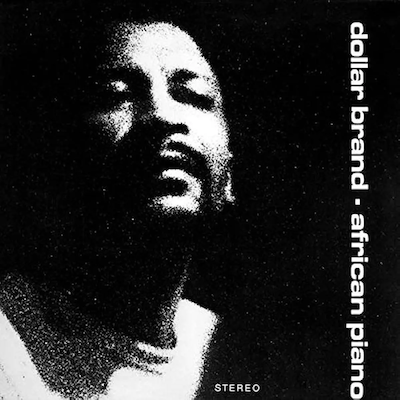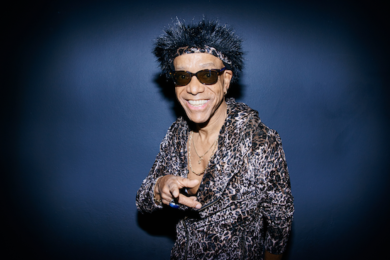5. Dollar BrandAfrican Piano

Also known as Abdullah Ibrahim, of course. I listen to it all the time, it is so meditative, it illuminates my home, it brings me to the bright sun of the South African townships on a December morning. I spent a lot of time in South Africa, and the jacaranda trees are all over Johannesburg at that time. In early December the trees are covered with these bright purple petals, whole streets! I was there from 2005 to 2012 with my partner at the time Rhodessa Jones. She is one of the pre-eminent artists working in jails, and we would be there for four or five weeks at a time, doing workshops and performances with women in jail, but that’s another story. However, me being in South Africa, I realised the repetitive motives of Abdullah’s playing puts me in a trance. It also puts me in mind of a kinship between African American jazz and South African jazz, two peoples who have a shared legacy of experiences of racial hatred, and White oppression, and fought against this to snatch victory out of the jaws of defeat. When I was there in 2005 it had barely been over ten years since apartheid had stopped. The remnants were somewhat present, but it was like night and day.
Out of all the people in the world who have embraced jazz, the South Africans have embraced it so much, it is extraordinary, like Hugh Masekela and so many jazz players. Abdullah’s representations of South African jazz are incredible. At one point during our civil rights struggle in the 1950s jazz was barely known in South Africa, but then they embraced our music and our struggle as well, that’s why African Piano is so important.


